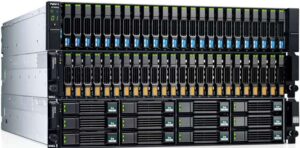
Business Needs a Strong Wireless Network: Key Design Strategies
A strong and reliable wireless network design can greatly affect a business’s efficiency. Without a well-designed wireless network, businesses can face disruptions that impact productivity and customer satisfaction. This blog will explore how to create a robust wireless network and the importance of IT support services in New Jersey for modern businesses.
Understanding Wireless Network Design
Wireless network design involves planning and setting up a network that allows devices to connect without wires. It includes choosing the right equipment, placing it in the best spots, and ensuring everything works smoothly together. A good wireless network design ensures that all devices within the network can communicate effectively without interference or data loss.
Why IT Support Services Are Essential
IT support services in New Jersey provide the necessary expertise to set up and maintain your wireless network. They help ensure your network is reliable and secure. With professional IT support, you can quickly prevent downtime and fix issues, keeping your business running smoothly.
Steps to Designing a Robust Wireless Network
Creating a robust wireless network involves careful planning and execution. Here are the key steps to ensure your network supports your business needs effectively:
1. Assess Your Business Needs
Before setting up your wireless network, assess your business needs. Consider the size of your business, the number of employees, the types of devices used, and the applications that require Internet access. Understanding these needs will help you determine the right equipment and network setup. For example, a small office with a few employees will have different requirements than a large enterprise with multiple departments and heavy data usage.
2. Plan Your Network Layout
Plan the layout of your wireless network carefully. Identify the locations where routers and access points will be installed. Ensure these devices are placed strategically to provide maximum coverage and minimize dead zones. Consider using a heatmap tool to visualize the coverage area and identify potential weak spots. You may need multiple access points for larger areas to ensure reliable connectivity throughout the premises.
3. Choose the Right Equipment
Selecting the right equipment is crucial for building a reliable wireless network. Invest in high-quality routers, access points, and wireless controllers to handle the expected load. Look for equipment that supports the latest wireless standards, such as Wi-Fi 6, which offers faster speeds and better performance in crowded environments. Additionally, devices with advanced features like MU-MIMO (multi-user, multiple-input, multiple-output) should be considered to improve efficiency when multiple devices are connected simultaneously.
4. Implement Strong Security Measures
Security is a critical aspect of any wireless network. Implement strong security measures to protect your network from unauthorized access and cyber threats. Use WPA3 encryption, set strong passwords, and regularly update your firmware. Consider setting up a separate guest network to keep your main network secure. This ensures that visitors and non-essential devices do not compromise the security of your primary business operations.
5. Optimize Network Performance
Optimizing network performance involves regular monitoring and adjustments. Use network management tools to monitor traffic, identify bottlenecks, and make necessary adjustments to improve performance. Consider implementing Quality of Service (QoS) settings to prioritize critical applications and ensure they receive sufficient bandwidth. This can help prevent issues like slowdowns during video conferences or file transfers, which are essential for maintaining productivity.
6. Plan for Scalability
As your business grows, your network needs may change. Design your wireless infrastructure with scalability in mind. Choose equipment and technologies that can be easily upgraded or expanded to accommodate future growth. For example, modular access points and controllers allow you to add more capacity without replacing your entire system. Planning for scalability ensures that your network can keep up with your business’s evolving needs.
Benefits of a Robust Wireless Network
Investing in a robust wireless network offers numerous benefits for your business:
- Improved Productivity: Reliable connectivity ensures that employees can work efficiently without interruptions.
- Enhanced Customer Service: Fast and stable connections enable better customer communication and quicker response times.
- Cost Savings: A well-designed network reduces downtime and maintenance costs, leading to significant savings over time.
- Flexibility: Wireless networks provide the flexibility to connect various devices and support remote work, allowing employees to stay productive from anywhere.
- Scalability: A scalable network can grow with your business, ensuring long-term reliability and performance.
Importance of IT Support Services
Having IT support services in New Jersey is essential for maintaining a robust wireless network. These services provide:
- Expertise and Knowledge: IT professionals have the skills and experience to set up and maintain complex networks.
- Quick Issue Resolution: With dedicated support, any network issues can be resolved quickly, minimizing downtime.
- Proactive Monitoring: IT support services often include monitoring your network for potential issues before they become major problems.
- Security Management: IT experts can implement and manage strong security measures to protect your network from threats.
Real-Life Success Stories
Many businesses have experienced significant improvements after implementing robust wireless networks with professional IT support. Here are a few examples:
1. Increased Efficiency
A small business saw a 30% increase in efficiency after revamping its wireless network design with the help of IT support. The new setup allowed for better coverage and fewer connectivity issues, leading to smoother operations.
2. Improved Customer Satisfaction
A retail store improved customer satisfaction scores by 40% after upgrading its wireless network and implementing better security measures. Customers appreciated the faster service and secure guest Wi-Fi.
3. Revenue Growth
A growing tech company experienced a 50% increase in revenue within a year of upgrading its wireless network and utilizing IT support services. The improved network reliability and performance enabled the company to take on more projects and serve clients better.
Conclusion
Designing a robust wireless network is essential for modern businesses. By investing in strong wireless network design and utilizing IT support services in New Jersey, you can create a network that supports your business’s needs today and in the future.
Visit Shock I.T. Support to learn more about designing and implementing robust wireless networks for your business. Let our experts help you build a network that ensures seamless connectivity and supports your business growth.





